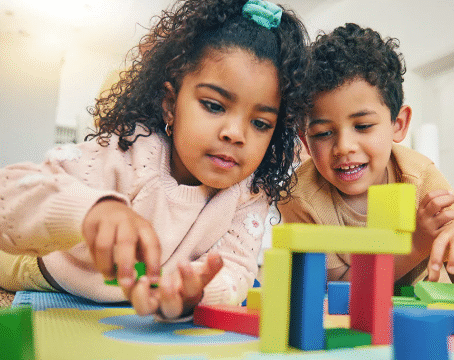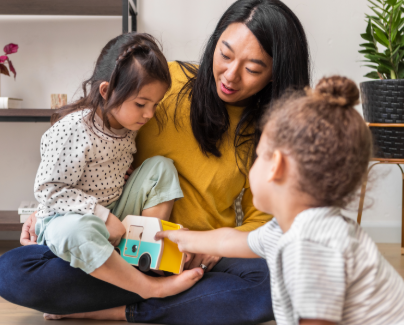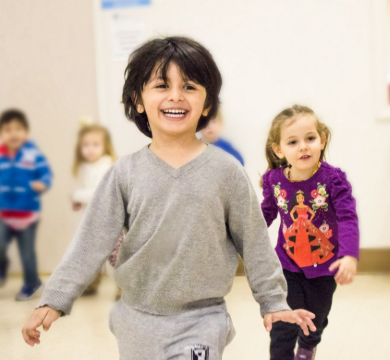Family time offers one of the best opportunities for children to learn habits that will stay with them for a lifetime. When parents and caregivers make wellness a part of everyday living, children absorb these practices naturally. They notice routines, observe behavior, and join in activities that teach them to take care of their bodies, minds, and relationships. Early childhood is a stage when learning happens quickly, and small, repeated practices with family become powerful lessons.
Healthy habits for children are not only about nutrition or physical exercise. They also include emotional awareness, kindness, self-care, balance, and appreciation of shared experiences. When families intentionally weave these lessons into daily life, children learn that health is more than a task; it is a way of living that feels supportive and joyful.
One of the first healthy habits children can learn through family time is the importance of regular movement. A simple evening walk after dinner, a game of catch in the yard, or even dancing together in the living room shows children that staying active can be fun. These shared activities strengthen family bonds while encouraging children to see movement as a normal and enjoyable part of each day. Over time, children learn that exercise is not only about sports or performance but about celebrating what their bodies can do.
Mealtime is another perfect opportunity for families to introduce healthy habits. Sitting together at the table gives children the chance to see balanced food choices and learn about the importance of slowing down while eating. Conversations at the table help children associate food with connection and nourishment rather than rushing or distraction. Involving children in meal preparation, even with simple tasks like washing vegetables or stirring ingredients, also teaches responsibility and sparks curiosity about nutrition. These shared moments plant the seeds for mindful eating habits that last into adulthood.
Alongside physical wellness, emotional health is another area where family time makes a lasting difference. Children benefit greatly from seeing parents and caregivers express emotions in calm and constructive ways. When families talk about feelings openly, it teaches children that emotions are natural and manageable. Simple practices like reflecting on the day, sharing what everyone is grateful for, or discussing small challenges in a supportive way help children build resilience and empathy. These skills prepare them to handle stress with confidence and to relate to others with kindness.
Another important habit children can learn early is the value of rest and balance. In today’s busy world, families sometimes fill schedules with endless activities, but setting aside time for quiet moments together teaches children that rest is as important as productivity. Reading bedtime stories, creating calming evening routines, or enjoying peaceful mornings without rushing shows children that balance is a healthy habit. When they see adults prioritize rest, children understand that wellness includes caring for the mind and body through proper sleep and relaxation.
Spending time outdoors is also a valuable part of family life that supports healthy habits. Nature offers children space to explore, play, and connect with the environment. Families who make outdoor time a priority encourage curiosity and appreciation for the world around them. Whether it is a picnic in the park, gardening together, or simply noticing the sounds of birds during a walk, children learn that being outside nurtures both health and happiness. These moments often become treasured memories while reinforcing the habit of seeking fresh air and natural surroundings.
Healthy communication within families is another practice that shapes children’s development. When children observe adults listening respectfully, sharing thoughts clearly, and resolving disagreements calmly, they learn these habits for themselves. Family discussions, no matter how simple, show children the importance of expressing themselves in a kind and thoughtful way. This not only strengthens family relationships but also equips children with social skills that will help them in school and friendships.
Family time is also the perfect moment to model generosity and gratitude. Encouraging children to help with small tasks, thank one another for kindness, and appreciate shared experiences teaches values that support emotional well-being. When families celebrate achievements together, no matter how small, children feel recognized and motivated. These celebrations can be as simple as acknowledging someone’s effort during a meal or expressing appreciation for a sibling’s help. Over time, these small habits encourage children to notice the good around them and to cultivate a positive outlook.
Another healthy habit that can grow from family time is learning to enjoy simple routines. Children thrive on consistency, and families who create predictable patterns of togetherness give children a sense of security. Whether it is a weekly family game night, a Saturday morning breakfast ritual, or a nightly reading session, these routines reinforce the value of time spent with loved ones. They also remind children that wellness is not about grand gestures but about meaningful daily practices.
Technology use is an area where healthy family habits are especially important. Children learn from what they see, so families who set aside time without devices create space for real connection. Establishing device-free meals or family evenings helps children understand the balance between screen time and personal interaction. These boundaries, introduced gently and consistently, teach children to value presence and face-to-face communication.
Parents and caregivers can also use family time to introduce habits of curiosity and lifelong learning. Reading together, visiting a museum, or even exploring a new hobby as a family encourages children to approach the world with interest and enthusiasm. These activities show children that learning does not stop at school and that exploring new ideas can be enjoyable. This healthy habit supports intellectual growth and builds confidence in trying new experiences.
The beauty of teaching healthy habits through family time is that it happens naturally. Children learn most effectively through observation and shared experiences. When parents and caregivers model wellness in their daily lives, children absorb these lessons without pressure. Instead of presenting healthy habits as rules, families can demonstrate them through joyful routines, open conversations, and supportive actions.
Healthy habits learned early with family time become a foundation for children’s lifelong well-being. They encourage children to care for their bodies, express their emotions, build positive relationships, and appreciate balance in life. Families that prioritize these practices not only strengthen their bonds but also give children tools that will guide them well into adulthood. Each shared meal, outdoor adventure, bedtime story, or heart-to-heart talk becomes a step toward building a future where wellness feels natural and joyful.
By weaving healthy habits into family routines, parents and caregivers offer children an enduring gift. They show that health is not separate from daily living but is part of every moment spent together. When children grow up surrounded by supportive practices, they carry those habits forward, creating a ripple effect that benefits their future families and communities. Family time, in its simplest and most consistent form, truly is the foundation for lasting well-being.






